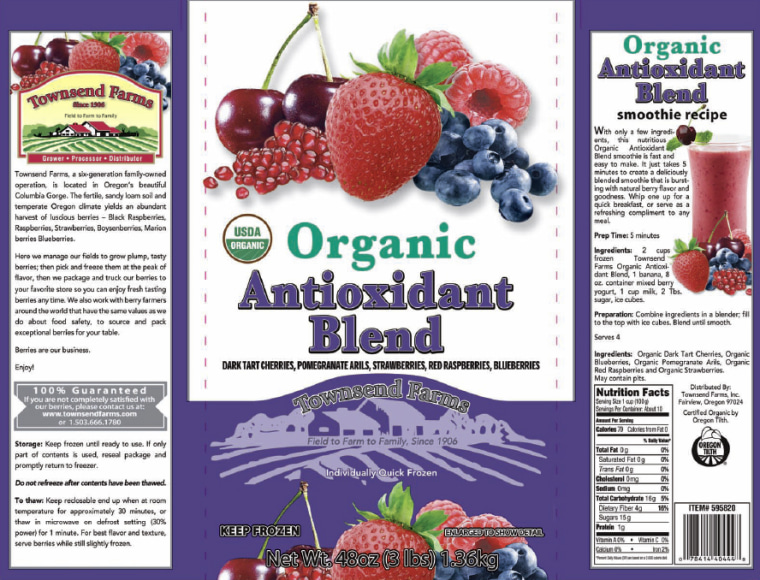Food and Drug Administration officials say they will detain shipments of pomegranate seeds imported from Turkey after an investigation identified the fruit as a common link in an outbreak of acute hepatitis A that has sickened nearly 130 people in the U.S.
Shipments from Goknur Gida Maddeleri Ithalat Ihracat Tic -- Goknur Foodstuffs Import Export Trading -- will not be admitted into the country, FDA officials said Saturday. It was not immediately clear how much product could be detained.
An FDA review of records determined that a shipment of the firm’s pomegranate seeds was the only common ingredient in a frozen berry fruit mix sold at Costco and Harris Teeter stores.
Packages of Townsend Farms Organic Antioxidant Blend and Harris Teeter Organic Antioxidant Blend were recalled June 3 after reports of illness. FDA inspectors have been reviewing practices at fruit producer Townsend Farms of Fairview, Ore., since early June.
At least 127 people in eight states have been sickened by acute hepatitis A after consuming the fruit mix, the Centers for Disease Control and Prevention reported Friday. Fifty-five people have been hospitalized.
Illnesses have been reported between March 31 and June 15 in Arizona, California, Colorado, Hawaii, Nevada, New Mexico, Utah and Wisconsin. The people who were ill in Wisconsin were exposed to the product in California, CDC officials said.
In addition, the pomegranate seeds were used by the Scenic Fruit Company of Gresham, Ore., to make their Woodstock Frozen Organic Pomegranate Kernels, which were recalled this week. The company recalled 61,092 8-ounce bags of the seeds, the FDA reported.
“This outbreak highlights the food safety challenge posed by today’s global food system,” said Michael R. Taylor, FDA's deputy commissioner for foods and veterinary medicine. “The presence in a single product of multiple ingredients from multiple countries compounds the difficulty of finding the cause of an illness outbreak. The hepatitis A outbreak shows how we have improved our ability to investigate and respond to outbreaks, but also why we are working to build a food safety system that more effectively prevents them.”
The FDA and the CDC worked together to use traceback and traceforward tools to identify the suspected culprit in the outbreak, officials said. FDA officials will be working with firms that have distributed pomegranate seeds from the identified shipment from Turkey to ensure that they are notified of the problem.
The outbreak strain of hepatitis A virus belonging to the genotype 1B was found in lab specimens of 56 victims in seven states. This strain is rarely seen in the Americas, but circulates in North Africa and the Middle East.
Hundreds of people who consumed the product have sought out immune globulin or hepatitis A vaccine to prevent illness. The outbreak has sparked lawsuits on behalf of ill patients and a class action suit on behalf of those who sought preventive shots.
Hepatitis A is spread when human feces contaminates food or when an infected food handler prepares food without appropriate hand hygiene. The viral liver disease can cause mild to severe illness lasting a few weeks to several months. Symptoms can include fatigue, nausea and vomiting, abdominal pain, low fever and yellowing of the eyes and skin – but not everyone who contracts hepatitis A shows signs of disease.
Shots to prevent the illness must be received within two weeks of eating contaminated food in order to prevent illness, health officials said.
JoNel Aleccia is a health reporter for NBCNews.com. Reach her on Twitter at @JoNel_Aleccia or send her an email.
